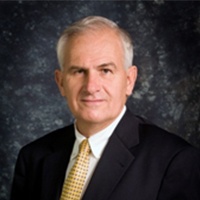 Albright Criminal Lawyers, West Virginia
Albright Criminal Lawyers, West Virginia
Sponsored Lawyers
1-7 of 7 matches
Divorce & Family Law, Medical Malpractice, Litigation, Criminal, Accident & Injury
Legal challenges require top-level experience and skill. That’s why individuals and businesses in West Virginia (WV) turn to attorney William C. Brewer at William C. Brewer & Associates, PLLC. Serving clients throughout the state, William C. (Bill) Brewer provides reliable advice, decades of experience, and guidance grounded in common sense, capably lifting the legal burden from your shoulders. When someone remarks that “you’re going to need a good lawyer,” then they mean retaining the services of someone like WV trial lawyer Bill Brewer. The reason is quite simple: Brewer is one of the leading trial attorneys in West Virginia, but his background as a business owner makes him an asset to those in the corporate world as well. Brewer has represented an impressive roster of clients in an equally remarkable number of industries, so it’s safe to say that the Morgantown trial attorney can ably handle nearly any type of case. Individuals and businesses have relied on this depth of experience for nearly four decades and continue to do so with the legal team at William C. Brewer & Associates, PLLC. Brewer received his education at West Virginia University, earning a bachelor of arts degree in biology (1976). A year later, he earned a bachelor of science in accounting, also from WVU. From there, he attended George Mason University School of Law (now Antonin Scalia Law School) in Arlington, Virginia, where, in 1980, he earned a juris doctor. Since Brewer’s admission to practice law in West Virginia (1981) and before the US District Court for the Southern District of West Virginia (1981), the US Court of Appeals for the Fourth Circuit (1981), the US District Court for the Northern District of West Virginia (1982), and the US Bankruptcy Court (1989), he has been integral to protecting individuals and businesses in asserting their legal rights or defending against claims or charges against them.
(more)Criminal, DUI-DWI, Traffic, Felony
Sean Logue is a diligent attorney who excels at representing people who have been charged with criminal and traffic offenses in Pennsylvania. He constantly strives to defend his clients in the state and the federal court as well as before other administrative agencies. He has been given the bar admission in Pennsylvania (since 2008), West Virginia (since 2009), and has the license to practice in the U.S. District Court of Pennsylvania (since 2009), the U.S. District Court Western District of Pennsylvania, the U.S. District Court Northern District of West Virginia, and the U.S. District Court Southern District of West Virginia. He received his undergraduate degree from Washington and Jefferson College in 2004 with honors in Political Science. Sean went on to earn his law degree at West Virginia University where he was the Student Bar Association Treasurer. His name was mentioned under the top 40 trial lawyers of 2012-2014. He is also a Pennsylvania Super Lawyers, Rising Star since 2014. Sean achieved his dream of starting his own practice in 2008. He has represented many people in various kinds of criminal cases, such as traffic offenses, sexual assault, homicides, DUI and drug crimes, and other white-collar crimes. He has successfully represented defendants all across western Pennsylvania and the tri-state area. He represents several national trucking companies and drivers associations for all of their complex traffic ticket needs. The Governor has appointed him to be a member of the council of trustees of the California University of Pennsylvania. He is associated with the National College for DUI Defense since 2009. He is an active member of the National Association of Criminal Defense Lawyers since 2008. He is also an eminent member of several other associations such as the Pennsylvania Bar Association, West Virginia Bar Association, Allegheny County Bar Association, and Washington County Bar Association. He has also been a proficient clerk at the Pennsylvania Office of Attorney General from 2007 to 2008, where he was involved in preparing organized crime and sex cases for trial. He has been a former member of the Federal Criminal Justice Act panel in the Northern District of West Virginia, where he handled complex federal drug cases as well as prisoner litigation. He is a proficient legal advocate who is highly professional and immensely knowledgeable. Consistently updated on the recent changes in DUI law, he has also won many DUI trials. He has in-depth knowledge about every aspect of criminal defense and has handled several cases in many district courts too. He is also known to have made professional relationships with judges, prosecutors and magistrates. He believes that trusting your attorney is extremely critical for a case. Therefore, he values honest and frank communication with all his clients. He immediately discusses any information he gathers on the case with his client. He makes sure you are aware of every minute detail regarding the case at every stage of the legal proceedings. When you are looking for an esteemed lawyer in Pennsylvania, it can be difficult to find the best one. Sean Logue is strongly committed to meeting the growing needs of his clients and provides them with the best possible defense.
(more)





